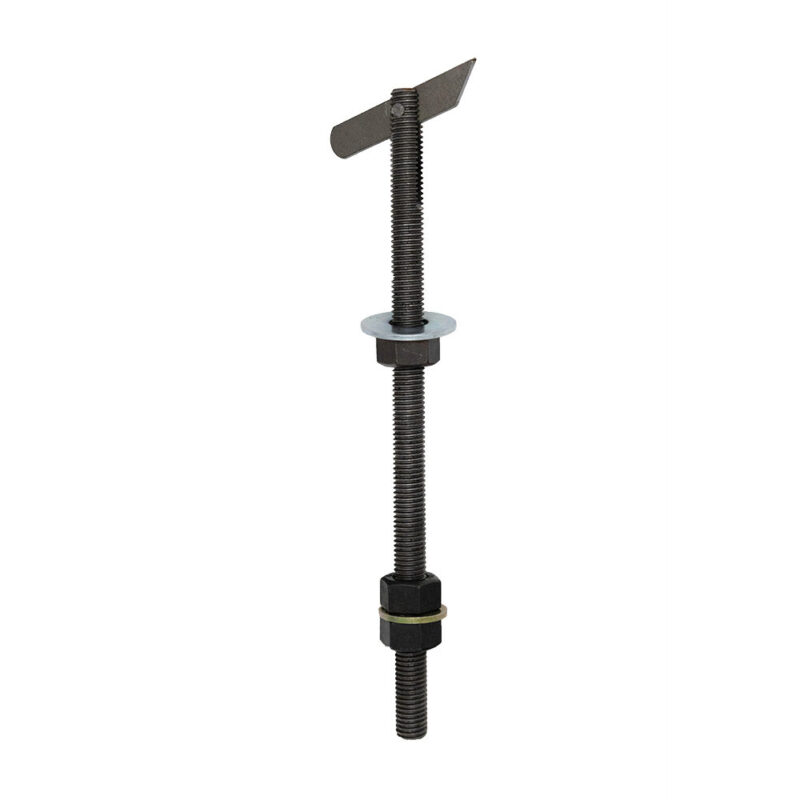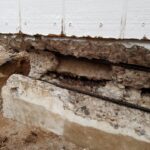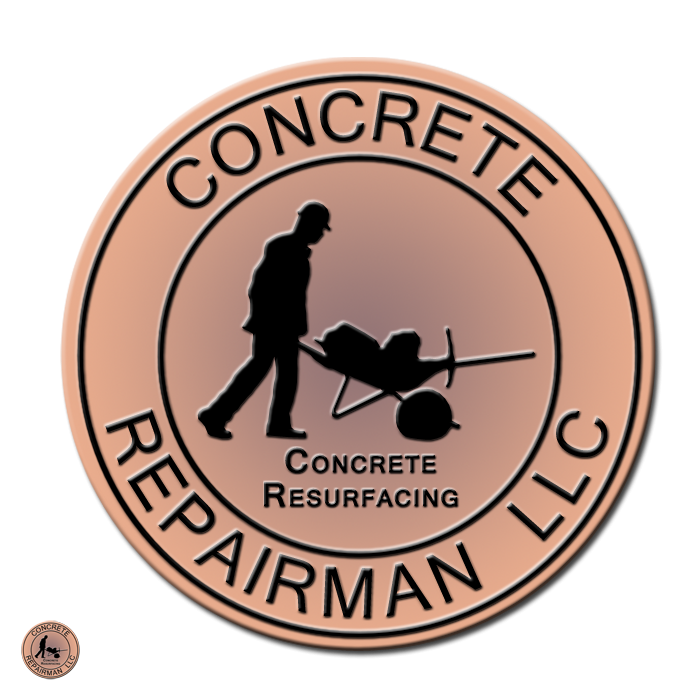Foundation Repair Concrete Repairman® We Fix It Right™
Licensed, Bonded and Insured Commercial & Residential Foundation Repair Contractors - ROC# 300512 CR-9
Foundation Repair Concrete Repairman® We Fix It Right™
Licensed, Bonded and Insured Commercial & Residential Foundation Repair Contractors - ROC# 300512 CR-9
Home » Foundation Crack Repair
Foundation crack repair Phoenix, Mesa, Tempe, Chandler, Gilbert, Ahwatukee cities in near me in Arizona, can occur for a variety of reasons. They can be caused by concrete shrinkage, aging, or construction issues. If you notice a crack in your home’s foundation, it’s important to understand the cause of the problem and how to repair it. Understanding different types of foundation cracks will help you determine the best repair method for your needs. More information about foundation crack repair.
If your foundation has cracks, they may be a sign of something serious that should be addressed by a professional. These issues range from water seepage in a

Foundation Repair Anchor Bolts fix Foundation Cracks
basement to severe foundation damage and even collapse of the building. Aside from structural damage, some foundation cracks can be a sign of non-structural problems that need to be repaired. These include concrete shrinkage and thermal movement in poured concrete foundations.
Depending on the severity of the crack, these non-structural cracks can be sealed against water leakage by using products like a cement and latex mixture, hydraulic cement or caulk and paint. Diagonal and stair-step cracks caused by differential settlement, on the other hand, can be signs of more serious foundation issues that need to be dealt with. These cracks are wider at one end, which can indicate that the foundation wall is bowing inward.
Concrete foundation crack repair is a critical part of keeping your home safe. If left untreated, foundation cracks can grow and cause serious structural problems. Most poured concrete foundation cracks are caused by shrinkage and settlement. This happens due to the settling of soil beneath and near your home’s foundation walls. Once the concrete has cured and set, most foundation cracks can be fixed with a variety of methods, depending on your property’s size and complexity.
A simple way to repair vertical foundation cracks is to fill them with polyurethane, silicone or latex concrete caulk. Apply it to the crack along its entire length and let it dry. Then, add a coat of waterproof masonry sealer to the surface. This will help to prevent water from seeping through the foundation wall. Afterward, inspect the area for any signs of dampness. If you notice any, repeat the caulk repair process. If the crack is still damp, it may have re-opened or is in need of a more extensive repair. Foundation crack repair Phoenix, Mesa, Tempe, Chandler, Gilbert, Ahwatukee
Horizontal cracks in foundation walls are caused by soil and water putting pressure on the wall. These can occur on block or poured foundations, especially when it’s cold enough to freeze and thaw the soil. These cracks can be fixed by a professional foundation engineer. It’s a good idea to get a crack inspection done to ensure the proper repair is being performed. Usually, horizontal cracks in foundation walls are more serious than vertical cracks because they result from shifting soil. Soils with high clay content tend to expand and contract as moisture evaporates from them, creating hydrostatic pressure that pushes against the foundation walls. Structural foundation cracks are a major concern because they can be the cause of significant structural damage to your home. If they’re wider than the thickness of a dime, or you notice wall bowing, it’s time to call a professional for an assessment. More about foundation cracks.
When a crack appears in your concrete foundation wall, it is important to repair it as soon as possible. This will prevent further damage to the structure and protect your home. The first step is to determine the cause of the crack. It could be from the settling of the soil around your foundation or due to changes in temperature that cause the concrete to expand and contract. Another reason that foundation cracks occur is when water gets into the walls from above or below and thaws. This causes spalling and flaking of the concrete. A simple fix for this problem is to fill the crack with polyurethane or silicone caulk. Make sure that the caulk is thick enough to withstand the expansion and contraction of your foundation.

If you notice small cracks in your foundation walls, it’s important to get them repaired. While some cracks may be harmless, others can cause serious problems.Diagonal and horizontal cracks in foundation walls can be a sign of significant foundation settlement. These are caused by soil pressure outside your home’s foundation and can lead to serious damage.
Structural repair is a way to stabilize a foundation and prevent future movement. It is usually required when a foundation or building structure starts to sink, bow
or crack. These repairs have little to no cosmetic impact on your home or property, but they are critical for safety and code standards. Depending on the direction and size of your foundation wall cracks, they may need immediate attention. Thin vertical foundation cracks that are less than 1/8″ wide aren’t necessarily anything to worry about, but if they expand in width, increase in number or include wall bowing, it’s time to get professional help.
Horizontal foundation cracks that span side-to-side or horizontally through a foundation wall are more serious and indicate structural problems. They are often caused by a lack of water drainage, soil pressure or shifting soil. These types of foundation cracks are also common during concrete curing and can cause severe damage to the surface or interior of a building. This type of foundation crack is also known as a shrinkage crack and can be quite large.
The simplest way to handle small shrinkage foundation cracks is to apply an epoxy filler to the space to fill it and prevent moisture from seeping in. Epoxy only fills
empty spaces and does not provide any extra structural support. Another option to address smaller shrinkage cracks is to apply a hydraulic cement. This is a waterproof cement product that is sold dry and mixed with water on the job to prepare a slurry that is then painted or troweled over the crack in your foundation wall. Hydraulic cement is a lower cost solution than epoxies and polyurethanes, but it can also re-crack over time and may require more permanent foundation repairs.
Finally, if a foundation wall is bowing or is moving significantly (more than 2″) carbon fiber strips can be applied and reinforced with epoxy injections to stop the walls from further movement. These types of repairs are relatively costly but they can help you save money in the long run. In most cases, a homeowner can perform simple DIY foundation crack repairs on their own using TSP cleaning solutions and a scraping device to remove the excess concrete. Occasionally, homeowners may even need to hire a professional for larger cracks.
Concrete is a great material for a foundation, but it is prone to cracks and deterioration. One of the reasons is that it is porous, which allows water to collect in the pocks, cracks, and seams of the concrete. This can cause damage and lead to foundation cracks, heaved slabs, and even bowing of the foundation walls. Reinforcement bars (rebar) are steel bars that are used to hold up concrete and make it stronger. They are used in a wide variety of structures, including homes and buildings.
Rebars are made from different materials, but they all share the same basic properties. They are forged or rolled from metal and then air cooled to the desired temperature and shape. They are also tempered by heat. This process can affect the rebars’ chemical composition and structure. It can also affect their mechanical properties and bond strength with concrete.
Many rebars can rust, and depending on the technology that is used to make them, some rebars may actually corrode sooner than others. This leads to a lot of confusion about which type of rebars can be used in certain situations. In most cases, a concrete cover is required to protect the rebars from corrosion. The concrete cover needs to be thick enough to prevent the penetration of oxygen, carbon dioxide, and moisture into the rebars. Despite the thickness of the cover, some cracks can still penetrate the concrete and oxidize or corrode the rebars.
This happens because the cracks open a pathway for oxygen, carbon dioxide, and moisture to reach the steel reinforcing in the concrete. Another important factor that can accelerate the corrosion of rebar is the presence of salts in the concrete. The salts, like chloride ions, will penetrate the concrete and corrode the steel rebars. The ions in the salts will function as a conductive electrolyte, which allows the rebar to corrode much faster. It also decreases the alkalinity reserve buffer in the concrete, which can help to prevent the rebars from being able to absorb so much acid.
If you have vertical cracks in the stem wall of your foundation, it can be an indication that something isn’t right. These cracks can be a sign of a number of different issues, including settlement and expansive soils that could lead to further damage to your home’s foundation. A stem wall is a type of foundation that rises above
the surrounding ground level, providing extra stability and support for your home. It’s also an ideal foundation for homes that are located in areas with heavy rains and floods. However, it can also be a sign that your foundation is in need of repair. It’s important to address these problems quickly so they don’t become worse.
Many of the foundation cracks that stem from this problem can be easily repaired. There are several options available that you can choose from, though it’s best to have a professional help with this process. First, your crack will need to be cleaned out of any debris that may be present. This is a crucial step, as it prevents the concrete from getting damaged. Next, it will be drilled and then filled with epoxy or a similar substance to strengthen your wall.
Once the crack is filled, it will be sealed with another layer of cement or a different substance to ensure that it doesn’t get any wider or allow water in. This method is usually completed within a day and should return your wall to its original strength. The concrete will also be sprayed with an additive to help it stay solid. This will prevent the concrete from shrinking down and forming small cracks as it hardens, which can cause further issues.
Aside from these solutions, there are other methods you can use to fix your foundation cracks, such as oxidizing the rebar or installing an electrical cathodic protection system. Both of these solutions are effective, but they can be expensive. In addition, they can have a negative impact on the integrity of your foundation and your home’s structure as a whole. It’s important to hire a concrete repair expert who understands how to fix your stem wall foundation cracks.
When you notice cracks in your foundation wall, or if the concrete of your home is shifting or sinking, you need to call a specialist for help. These cracks and other foundation problems can be dangerous, as well as costly. Fortunately, there are several ways to repair cracks in foundation walls without having to completely tear out the concrete and start from scratch. Some cracks may only require a simple patch or sealant product. However, others that continue to grow can indicate underlying foundation issues that are much more serious.
Another sign that your home’s foundation is settling is when the basement or crawl space is uneven. This can make it difficult to walk on the floor or to get in and out of your home easily. It can also cause the windows and doors to sag and gap. Many foundations settle naturally, but they can get worse with time and become an issue if they’re not properly anchored. When your home’s foundation has a problem, the structural integrity of the entire house is at risk.
Foundation repair specialists can correct these issues by restoring the foundation’s stability. They can use a variety of techniques, including underpinning and piering. They can also jack up the concrete or inject it with filler to raise the foundation and stabilize it. While some of these methods can be expensive, they are effective at repairing and preventing foundation damage. In addition, they can help your home’s value stay high and reduce the likelihood of future foundation problems.
There are many things you should consider when choosing a foundation repair contractor. These include their reputation, experience, and insurance coverage. They should also have warranties and guarantees in place. A foundation repair company should carry a license in the state or county they operate. This is required by law, and it’s an important safety measure. Some states require foundation repair companies to have a professional engineer complete a soil report, which can be helpful in identifying the source of your foundation’s problem. Having this report completed before any work begins can save you money and frustration later on.


